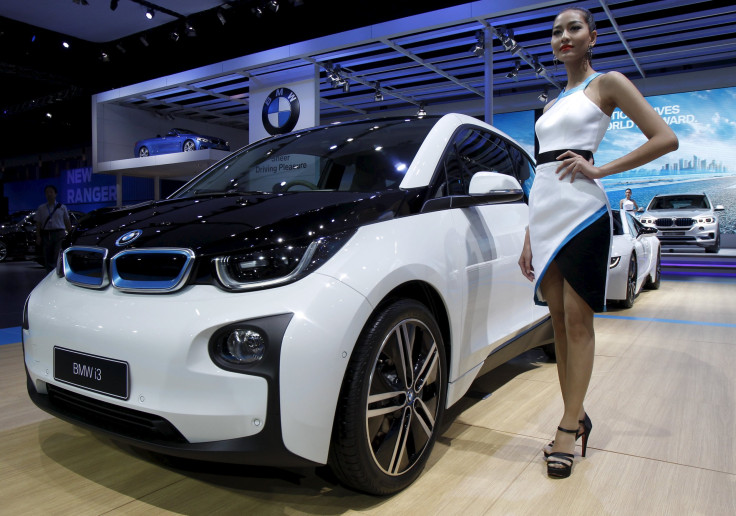BMW i3 Electric Car Update: Longer Range, New Design Coming In 2017, Report Says

BMW is an iconic brand in the automobile industry, well-established and well-liked, but that hasn’t translated to success for the German automaker when it comes to electric vehicles. Having sold only about 25,000 of the i3 hatchbacks in 2015, the company is planning to upgrade its small car next year.
German weekly Welt am Sonntag (in German) reported Sunday the i3 will get a makeover that will see both the front and rear ends of the car reworked. Additionally, new battery technology will give the vehicle increased range as well, which BMW says is currently 114 miles on full charge. The range can be extended up to 180 miles using a “Range Extender.”
The Sunday newspaper, which cited company sources, did not specify what the new range would be with the new battery, but said the increase would be less than a 50 percent, keeping it well below the 200 mile range.
By way of comparison, Tesla Motors’ Model S with its new P100D battery offers over 300 miles on a single charge. Of course, there is a substantial cost difference. The 2017 BMW i3 with Range Extender costs $47,450, not including destination and handling charges, while the rear wheel-drive version of Model S with a 60 kWh battery (range up to 210 miles) without any add-ons costs about $68,000, including $1,200 for destination and documentation fee.
The newspaper also spoke with Klaus Fröhlich from BMW’s development division about the company’s autonomous driving vehicle plans. Fröhlich said the company wanted to see a common standard across the industry when it came to self-driving vehicles, and that they used the same number of sensors and same systems.
Five months ago, BMW announced a self-driving collaboration with Intel and Mobileye. The latter is an Israeli company that worked with Tesla on its Autopilot system before parting ways over what it called Tesla “pushing the envelope in terms of safety.” Tesla refuted the allegations, saying the split was caused due to its development of its own video-processing system and commercial issues.
© Copyright IBTimes 2025. All rights reserved.





















